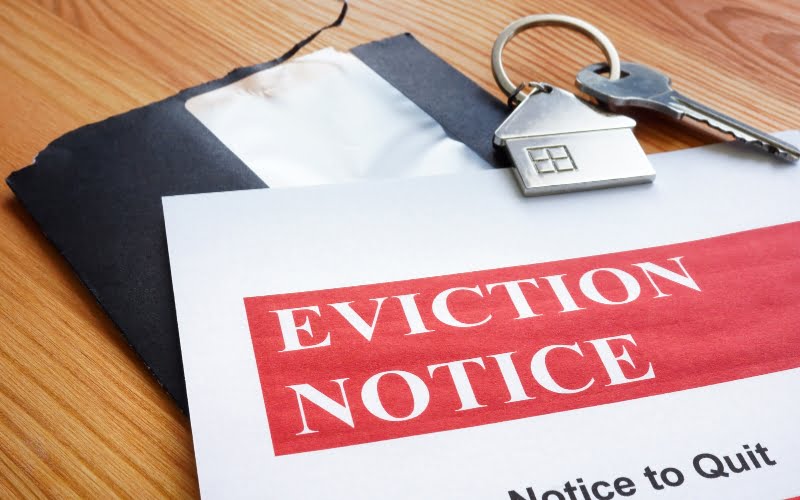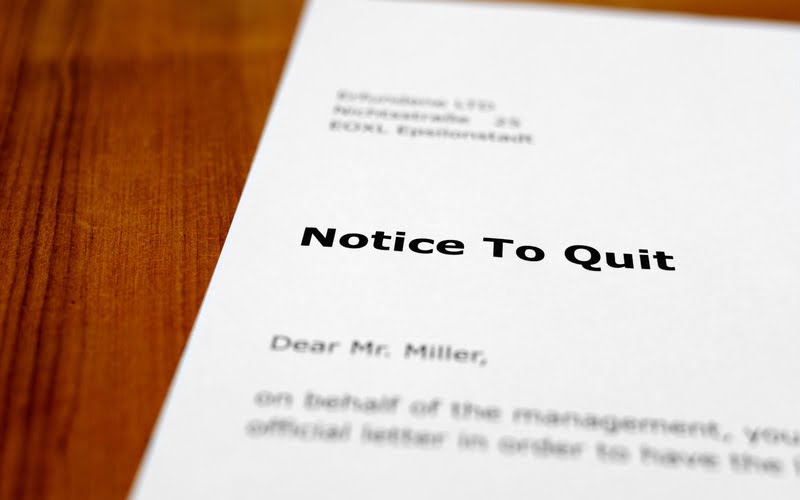Last Updated on March 18, 2024 by Kelvin Nielsen
If you’re a landlord in Delaware, you may need to serve a 30-day notice to vacate to your tenant. This notice is a legal document that informs the tenant that they have 30 days to move out of the rental property. It’s important to understand what a 30-day notice to vacate is, how it works, and how to serve it properly.
A 30-day notice to vacate is a legal document that is used to end a tenancy. It’s typically used when a tenant has violated the terms of their lease or rental agreement, or when a landlord wants to end a month-to-month tenancy. In Delaware, a landlord can serve a 30-day notice to vacate for any reason, as long as it’s not discriminatory or retaliatory.
Understanding a 30-day notice to vacate is important for both landlords and tenants. For landlords, it’s important to know when and how to serve the notice properly. For tenants, it’s important to understand their rights and obligations under the notice, including their right to contest the notice in court.
In this article, we’ll take a closer look at what a 30-day notice to vacate is, how it works, and what you need to know to serve or respond to one in Delaware.
Related Post:
- What Rights Do Tenants Have in Delaware? A Comprehensive Guide
- Can You Withhold Rent in Delaware? A Guide to Tenant Rights
- Can You Break Your Lease Early in Delaware? A Guide to Lease Termination
- Can a Landlord Break a Lease in Delaware?
Key Takeaways
- A 30-day notice to vacate is a legal document used to end a tenancy in Delaware.
- Landlords can serve a 30-day notice to vacate for any reason that is not discriminatory or retaliatory.
- Understanding the notice is important for both landlords and tenants to ensure proper procedure is followed.
Understanding a 30-Day Notice to Vacate

If you are a tenant in Delaware, it is important to understand what a 30-day notice to vacate means. This notice is a written notification from a landlord to their tenant, informing them that they must leave the rented property within 30 days.
Legal Definition in Delaware
In Delaware, a 30-day notice to vacate is required for month-to-month tenancies. According to the Delaware Code, a landlord must give a tenant at least 30 days’ written notice before the end of a rental period if they wish to terminate a month-to-month tenancy. If the tenant has a fixed-term lease, the landlord cannot terminate the lease before the end of the lease term unless the tenant violates the lease agreement.
Importance of Giving Notice
A 30-day notice to vacate is important for both landlords and tenants. For landlords, it is a legal requirement that must be followed to terminate a tenancy. Failing to give proper notice can result in legal consequences, such as being unable to evict a tenant or being sued for damages.
For tenants, a 30-day notice to vacate gives them time to find a new place to live. It also gives them the opportunity to correct any lease violations, if applicable, before being forced to leave the rental property.
In conclusion, understanding a 30-day notice to vacate is crucial for both landlords and tenants in Delaware. By following the legal requirements and giving proper notice, landlords can avoid legal consequences while tenants can prepare for their move and potentially correct any lease violations.
Related Posts:
- 5 Day Eviction Notice in Delaware: Understanding the Process
- How Long Does It Take to Evict a Tenant in Delaware: A Clear Timeline
Procedure for Serving a 30-Day Notice
If you are a landlord in Delaware, you have the right to serve a 30-day notice to vacate to your tenants. This notice is a legal document that informs your tenant that they must vacate the rental property within 30 days.
Writing the Notice
To write a 30-day notice to vacate, you must include the following information:
- The date
- The tenant’s name and address
- The reason for the notice (if applicable)
- The date the tenant must vacate the property
- Your name and contact information
You can use a template or create your own notice. Make sure that the notice is clear and concise and that it complies with Delaware’s landlord-tenant laws.
Delivering the Notice
Once you have written the notice, you must deliver it to your tenant. You can deliver the notice in person or by certified mail. If you deliver the notice in person, make sure that you have a witness present.
If you choose to deliver the notice by certified mail, make sure that you send it to the tenant’s last known address. Keep a copy of the notice and the delivery receipt for your records.
It is important to note that you cannot force your tenant to leave the property before the 30-day notice period has expired. If your tenant does not vacate the property after the notice period has expired, you may have to file an eviction lawsuit.
Conclusion
In conclusion, serving a 30-day notice to vacate is a legal process that requires careful attention to detail. By following the proper procedure for writing and delivering the notice, you can ensure that your tenant understands their obligation to vacate the rental property within 30 days.
Disclosure: The content herein isn’t a substitute for advice from a professional attorney. It’s only meant to serve educational purposes. If you have a specific question, kindly seek expert attorney services.
Sources: Residential Landlord-Tenant Code, A Summary of the Delaware Residential Landlord-Tenant Code, Guide to Tenant Rights & Responsibilities,

Amanda Rose is a seasoned landlord with 13+ years of expertise in overseeing diverse properties. Her adept management spans single and family homes, along with multi-family apartments and condos, across Wyoming and South Dakota. Her commitment and proficiency have cemented her status as a thriving property management professional.
She is a member of the following organizations: Wyoming Landlord’s Association, National Association of Residential Property Managers (NARPM), Wyoming Apartment Association, South Dakota Multi-Housing Association (SDMHA), and South Dakota Landlord Association (SDLA).







